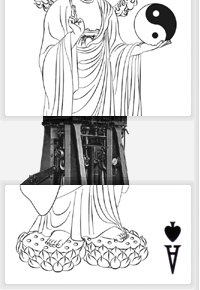From Chatterjee, R. Wittgenstein and Judaism. Peter Lang Publishing, 2005.
‘Telling people what they don’t understand is pointless, he [Wittgenstein] says, even if you tell that they won’t be able to understand, which often happens with a loved one… People have to be kept out of a room containing something they won’t understand by putting a lock on the door for which they do not have the key (Culture & Value; 7e). Recognizing the failure of understanding immediately results in a search for the key by those who really want to know the significance of the room’s contents; other may not even see the lock: “The honorable thing to do is to put a lock on the door which will be noticed only by those who can open it, not by the rest” (C&V; 8e)’ (p.63)
“Yes, a key can lie for ever in the place where the locksmith left it and never be used to open the lock the master forged it for” (C&V; 54e) (quoted in p.63)
cf.
‘Maimonides used the lock-and-key metaphor himself in speaking of “a key permitting one to enter places the gates to which were locked”’ (p.63)




 「母の日に私は悪魔になってしまいました。」
「母の日に私は悪魔になってしまいました。」








